
24 minute read
Mya Bell Photography
Mya Bell is a 17-year-old Mississippi School of The Arts student with a focus in Vocal, Theater and Photography. She is the daughter of Joanne Bell Wright.

Advertisement



Schedule your photoshoot with Mya. Email MyaBellPhotography@gmail.com or call 601-398-6733.









Breast Cancer AWARENESS
October is Breast Cancer Awareness Month, an annual campaign to increase awareness of the disease. The National Breast Cancer Foundation (NBCF) was founded in 1991 by breast cancer survivor, Janelle Hail, who was diagnosed with breast cancer in 1980 at the age of 34. At the time of her diagnosis, there was little information about the disease, and she was forced to make a decision about her health with few options. After her treatment, Janelle made a commitment to help women around the world by educating them about breast cancer and the importance of early detection.
NBCF’s mission is to help women by providing help and inspiring hope to those affected by breast cancer through early detection, education and support services. One in eight women will be diagnosed with breast cancer. There is currently no known cure for breast cancer, and its early diagnosis is critical to survival. NBCF offers free, innovative programs that other organizations aren’t providing to women facing breast cancer so that no one faces breast cancer alone.
“I don’t think anyone is ever ready to receive news of breast cancer, especially when you are preparing to have your first child. I went to NBCF’s partner hospital looking for financial help to cover the medical expenses necessary to assure my health and the health of my baby. I can never thank them enough for all their love, “ says Julia, a patient served by NBCF Programs at Moffitt Cancer Center.
Cancer is a broad term for a class of diseases characterized by abnormal cells that grow and invade healthy cells in the body. Breast cancer starts in the cells of the breast as a group of cancer cells that can then invade surrounding tissues or spread (metastasize) to other areas of the body. These cells can spread by breaking away from the original tumor and entering blood vessels or lymph vessels, which branch into tissues throughout the body.
A total of 64% breast cancer cases are diagnosed at a localized stage (there is no sign that the cancer has spread outside of the breast), for which the 5-year survival rate is 99%. Breast cancer is the most common cancer in American women, except for skin cancers. It was estimated that in 2020, approximately 30% of all new women cancer diagnoses would be breast cancer. On average, every 2 minutes a woman is diagnosed with breast cancer in the United States.

In recent years, perhaps coinciding with the decline in prescriptive hormone replacement therapy after menopause, we have seen a gradual reduction in female breast cancer incidence rates among women aged 50 and older. Death rates from breast cancer have been declining since about 1990, in part due to better screening and early detection, increased awareness, and continually improving treatment options.
Early detection includes doing monthly breast self-exams, scheduling regular clinical breast exams, and mammograms. A doctor can check for breast cancer before there are any noticeable symptoms. During an office visit, the doctor will ask about personal and family medical history and perform a physical examination. In addition, the doctor may order one or more imaging tests, such as a mammogram.
Source: https://www.nationalbreastcancer.org/ breast-cancer-awareness-month



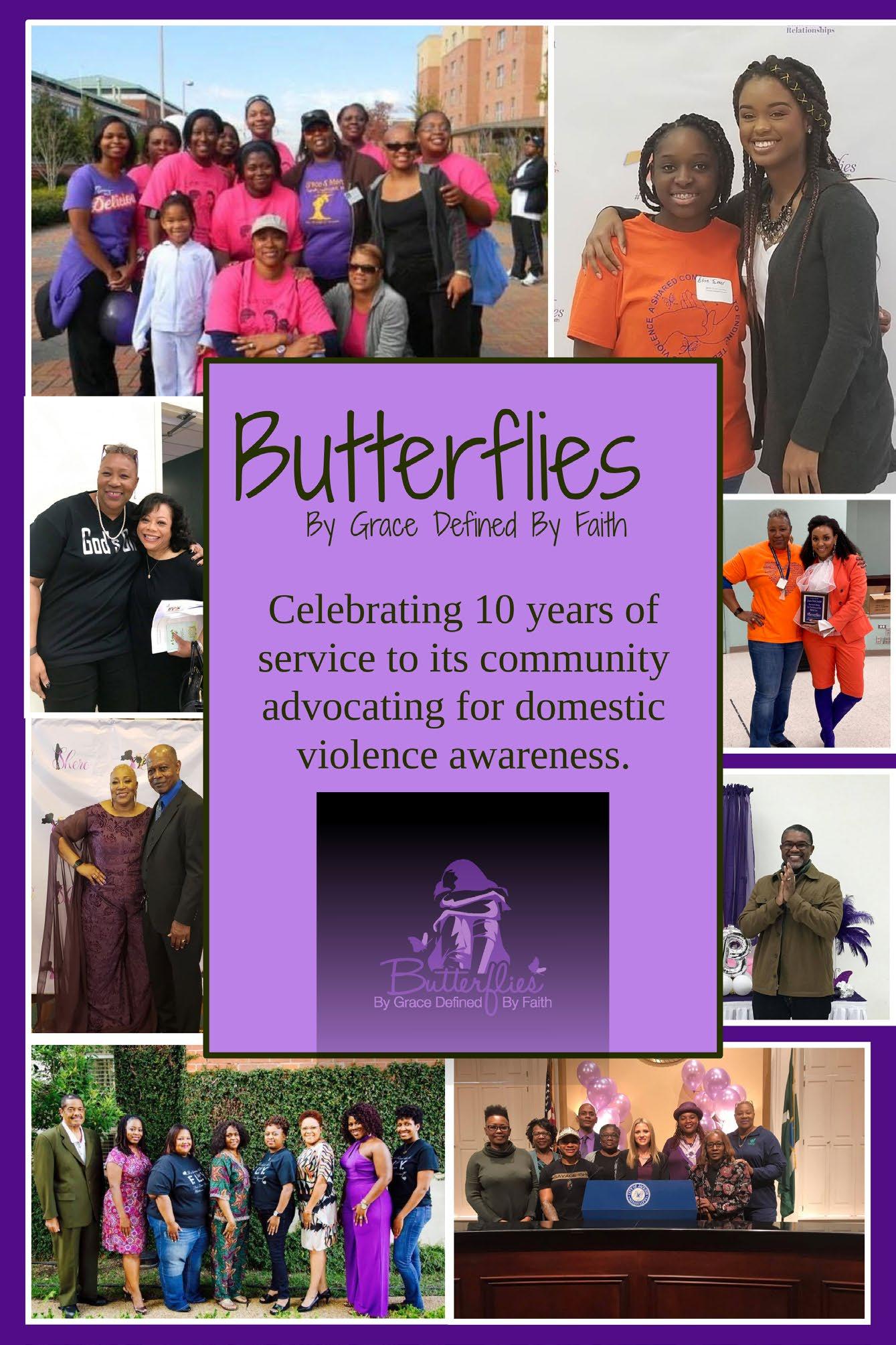
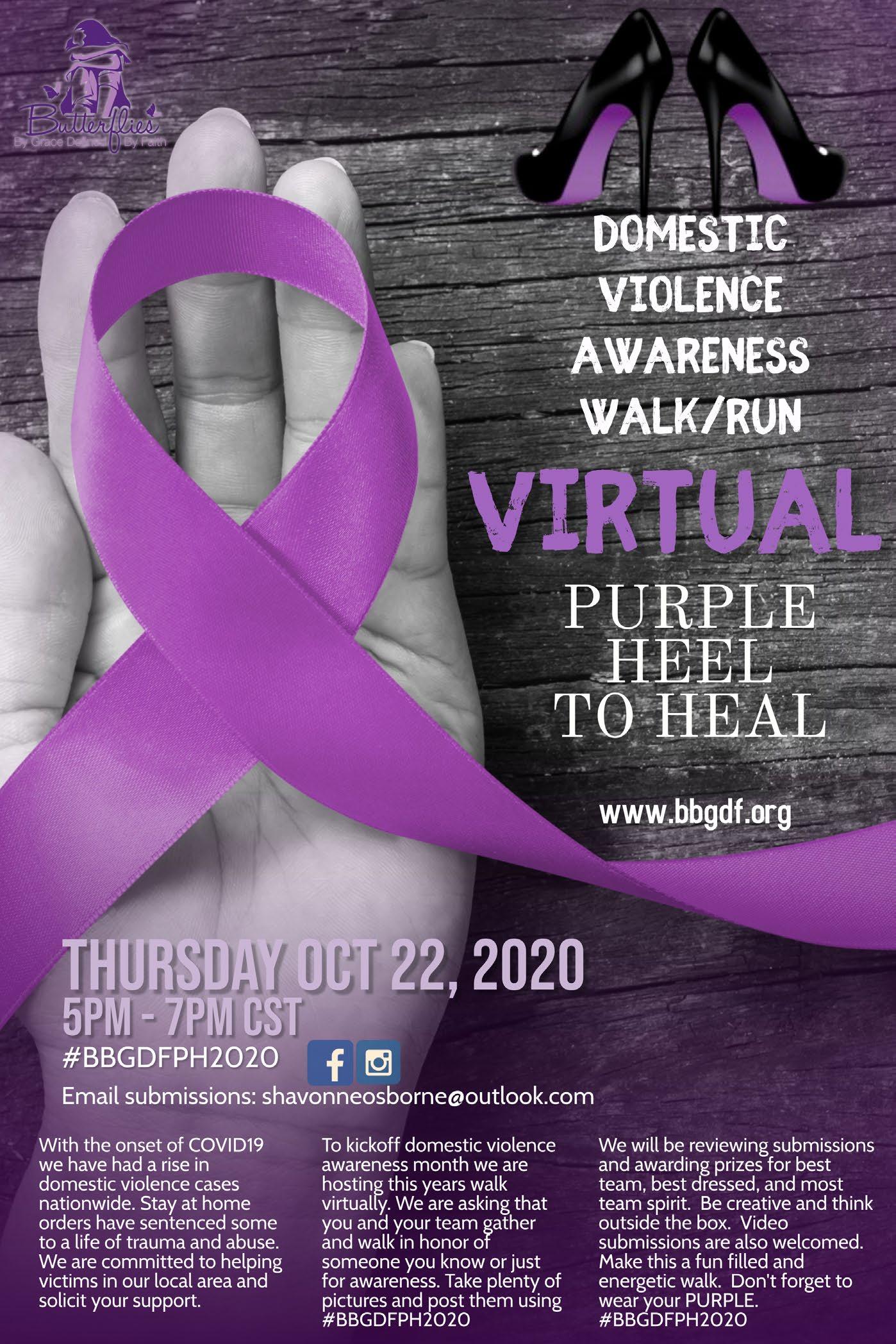
Covid-19, Expectations are important. Guidelines must be clear so employees can be held accountable and know the consequences of not meeting expectations. FLIGHT OR 4If you have a solid vision, the bigger picture will prevail. Stay positive and focused on the ultimate vision for your staff. Morale comes from the top down. A negative leader will create negative employees. FIGHT Being positive sets the standard and expectation for employees. 5Miscommunications are usually a result of the lazy/ unmotivated employee rather than those who are By Dr. Amanda Lucas invested. Employees who are constantly upset about miscommunication, are frustrated with their daily duties, During this difficult time with Covid-19, society seems to and must be pushed to be adaptable and flexible may be on high alert and exhibits characteristics of anxiety. have personal problems. There could also be a weak Working in retail and having to manage one of the top link in the communication chain. These people usually three stores in my district, I’ve witnessed others present excuse themselves from the organization. The seed of a “flight or fight” response. It’s unfortunate some must negativity or unwillingness to compromise can’t grow choose between providing the needs of their families when it’s being watered by the hope of great potential, and putting their own health at risk. There are some the standards of excellence, the drive of an everyday employees who never wanted to work in the first place, ambition, and positivity. which can be shown through displaying doubts and insecurities about who they are and what it is they now face in the presence of adversity. America must remain 6 Sometimes people don’t support your vision, probably because it wasn’t their idea, and that’s strong. okay. There could be an employee upset because a Work ethic and adaptability in a work environment is vital never happen. It’s the leaders’s job to communicate when facing times like these. As the world continues to the bigger picture, no matter how bleak or stressful. change, people must be flexible with jobs, schools, and While the leader may inspire some, there are others families. Knowledge on adaptability is important, as well who may be upset about the mission or purpose of the as teaching others about the subject. A leader in the organization. workplace, household, or church must regard that task seriously These tips can help manage others in personal and work life. 7 Being unsupportive at work is the truest definition of sabotage. It’s one thing to come to work and do bare
1Communicate in an inspiring way. Speak to others in or other managers. It comes from the top down and a way that’s inspiring and clear. Others can’t represent expands. Leaders set the standard and the example. If you in your absence if they don’t see you as a leader,. you don’t care, they won’t either. They will not see your vision and or push your agenda. Personalizing the mission of your organization with employees is important. Find what motivates your 8No matter what mistakes are made, it can be fixed. We know leaders take risks and make mistakes. Learn employees in daily situations. from past mistakes, and don’t repeat them.

2Hold yourself accountable. How far are you pushing forward as a leader? Minimum tasks can be seen as boring or delegating. Jump into operations with your staff to provide an exceptional example.
3Calculate the end vision when you’re at the beginning. Rather than seeing objectives for each day, look at the bigger vision. Delegate daily tasks to employees on which they can be great, pushing them to be great. If employees see the vision is longer than a daily goal, they will be motivated to excel. Standards matter. message was relayed about a change they felt would minimum, but it’s another thing to not support your staff
9Silence cannot be interpreted. Your silence can speak louder than your voice. If you tolerate it, it will be set as your standard.
10You are only as powerful as your team. Even in stressful times a leader must be positive, uplifting, and a visionary. See the vision and live it through example and leadership.
Follow me on IG @dr.mandi2you or email me at dr.mogul2you@gmail.com.
2020 Census
The 2020 Census count is mandated by the U.S. Constitution and conducted by the U.S. Census Bureau, a nonpartisan government agency. The 2020 Census counts the population in the United States and five U.S. territories (Puerto Rico, American Samoa, the Commonwealth of the Northern Mariana Islands, Guam, and the U.S. Virgin Islands). Each home received an invitation to respond to a short questionnaire—online, by phone, or by mail—in March 2020.
The census provides critical data that lawmakers, business owners, teachers, and many others use to provide daily services, products, and support for you and your community. Every year, billions of dollars in federal funding go to hospitals, fire departments, schools, roads, and other resources based on census data. The results of the census also determine the number of seats each state will have in the U.S. House of Representatives, and they are used to draw congressional and state legislative districts.
The U.S. Constitution: Article 1, Section 2, mandates that the country conduct a count of its population once every 10 years. The 2020 Census will mark the 24th time that the country has counted its population since 1790.
The 2020 census is the first in the U.S. since the rise of social media and the first U.S. count that’s primarily online. For months, the government has been preparing to combat disinformation campaigns that may try to disrupt the count, which is rolling out not only in the
By Dr. Brenda Wilder
Venecca G. Green
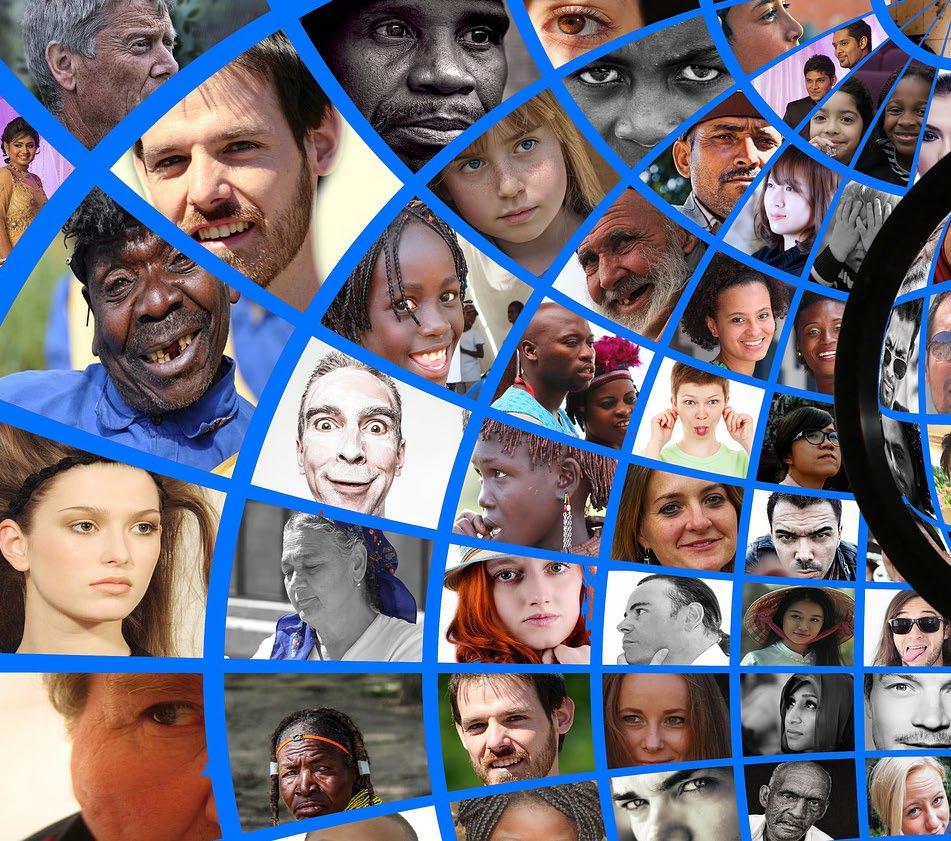
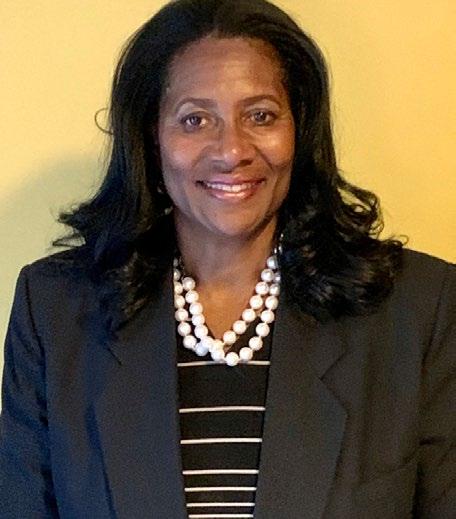
middle of a presidential race but also during the coronavirus pandemic. The outbreak of COVID-19 has forced the Census Bureau to postpone its field operations, but the bureau says it is still collecting information from tens of millions of households that have been responding on their own.
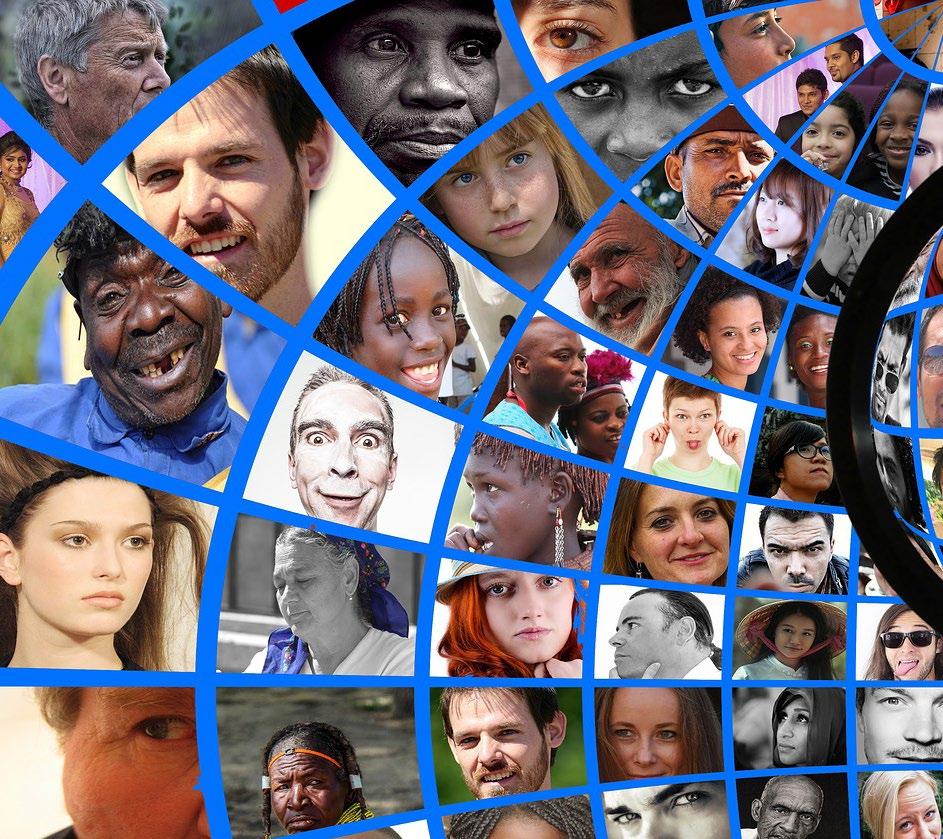
Census workers are expected to make home visits to remote areas — including rural Alaska, parts of northern Maine and some American Indian reservations — to gather census information in person. Households in the rest of the U.S. that did not respond by late April have begun receiving visits from door knockers trained to conduct census interviews and collect responses using smartphones.
Most of the census questions are similar to what census forms have asked for in recent counts:
The number of people living or staying in a home on April 1, 2020. Whether the home is owned with or without a mortgage or loan, rented or occupied without rent. A phone number for a person in the home. The name, sex, age, date of birth and race of each person in the home. Whether each person is of Hispanic, Latino or Spanish origin. The relationship of each person to a central person in the home.
A person can skip questions, submit an incomplete census form, and still be included in the head count. But they can be fined for refusing to answer a census question or intentionally giving a false answer, although the penalty has rarely been enforced in the past. Returning a partially filled questionnaire may result in a follow-up phone call or visit from a census worker.
Under current federal law, the bureau cannot share census responses identifying individuals with the public or other federal agencies, including immigration authorities and other law enforcement, until 72 years after the information is collected. The Census Bureau, however, can release anonymized census information about specific demographic groups at a level as detailed as a neighborhood.
While paper forms will only be available in English and Spanish, one can respond online or by phone in Spanish, Arabic, Chinese, French, Haitian Creole, Japanese, Korean, Polish, Portuguese, Russian, Tagalog and Vietnamese. The bureau is also providing video and printed guides in 59 non-English languages, as well as a video in American Sign Language.
The Census Bureau is expected to announce the new population counts by Dec. 31, 2020. That’s the bureau’s deadline for sending to the president numbers for the reapportionment of congressional seats, which goes into effect beginning with the 2022 elections. 2020 census data used for state and local redistricting are set to be released by March 31, 2021. The bureau is planning to release other new census data beginning in spring 2021.
Venecca G. Green, a census worker, received an email from the Census Bureau explaining the need for people to work collecting information for the 2020 Census. Believing that this was a public service that she needed to do, she applied. In August, Venecca received a telephone call asking if she still desired to work for the 2020 census. A requirement was that she be able to work a minimum of 20 hours a week. She agreed, was interviewed via telephone, and chosen for the job of Enumerator. She passed the background check and successfully completed the training and examination.
As an Enumerator, Venecca collects census data from households who did not respond to the mailed 2020 census forms. A typical day for her is: go door-todoor to interview a member of the family or an eligible respondent at least 15 years old. Before starting the interview, she must assure she has the correct address. If the person/family lived at the address on April 1, 2020, she records the number of people who also lived at the address on that date, collect names, the relationship of members of the household, their gender, dates of birth, age as of April 1, 2020, and race/national origin. If the person/family did not live at the address as of April 1, 2020, they can be a proxy, if they know any information about who lived there on April 1, 2020. If a person/ family did not live at the address on April 1, 2020, Venecca asks if they responded to the census for the address where they lived on April 1, 2020. If they did, she concludes the interview. If they did not, she collects data for their residence on April 1, 2020. To collect the data, she has an I-Phone loaded with a program called Field Data Collection (FDC), which contains a case list, her work availability, work schedule, and other tools to assist her work.
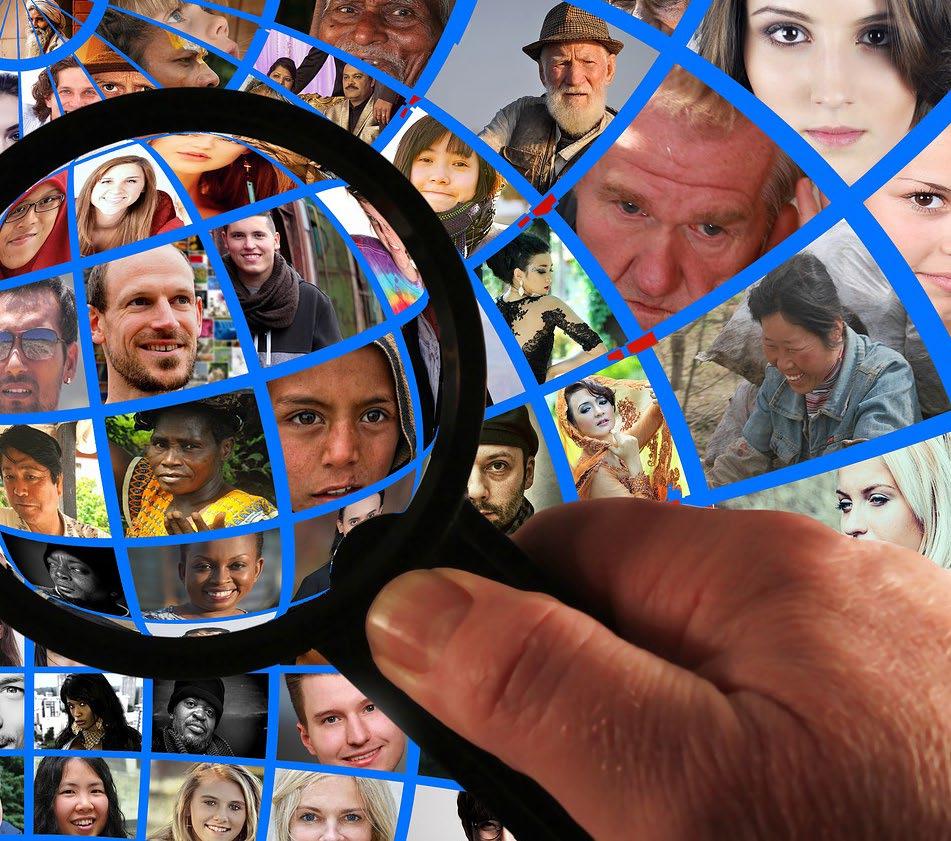
Venecca finds fulfillment in knowing that she’s doing an important and vital job for her country. She encounters citizens who are apologetic for not previously responding. She met a family who had a week old baby. The mother was not able to stand at the door to give the interview, and the father, who was working from home, could not do the interview at the time she was there. The mother agreed to do the interview by telephone while Venecca sat in her car in front of the house. As she completed the interview, the husband rushed to her car frantic because he was afraid that his family would not be counted in the 2020 Census. When she told him that his wife provided their information over the telephone, his face was relieved and happy.

Most of Venecca’s experiences collecting census information were positive. One negative experience was an event where a very rude lady called the police about her. The police arrived and told her to continue with her work, which made the woman more angry.
Because of the public health crisis, the U.S. Census Bureau extended the deadline for completing the census until Oct. 3, 2020 The census is easy to complete online, by phone, or by mail. It only takes a few minutes, so it’s best complete it as soon as possible. It’s not too late to respond. The Census is only taken every 10 years, and this important data impacts our country, state and local communities. The results of the 2020 Census will help determine how hundreds of billions of dollars in federal funding flow into communities every year for the next decade. That funding impacts plans for highways, support for firefighters, families in need during natural disasters, and school lunches.
Venecca Green is a native Mississippian born in Jackson and educated in the Jackson Public School System. She has a Bachelor of Science and a Masters of Business Administration from Jackson State University, plus a degree from the MS College School of Law. She works full time in her own law practice, Venecca G. Green & Assoc., LLC. Her active civil practice includes all areas of the law, managing cases that involve personal injury, family matters, divorce, child support, guardianships, name changes, expungements, probate, wills, estates matters, and property rights. Venecca is a certified tennis professional, avid tennis player, and coach. She is the oldest of nine girls and has a son, Marty. In addition she has a granddaughter, Brittany, and a great grandson, Donavan.
Johnnie Mae Pepper, Venecca’s Mom, instilled in her Christian principles, to have a heart of giving, a desire for sharing what she has, and the importance of having compassion for others.
Sources: 2020census.gov/en/what-is-2020-census.html; .npr.org/2019/03/31/707899218/what-you-need-to-know-about-the-2020-census; Venecca Green interview 9/13/20
Higher Education Tiffany Jefferson
Tiffany Jefferson of Jackson, MS, a faculty member at Hinds Community College earned her B.S. in Marketing from Oklahoma State university, a Master of Education in Dance Curriculum and
Instruction from Wichita State University, and is currently pursuing a Ph.D. in Educational
Administration from Jackson State
University.
Tiffany says her family is hilarious and are definitely not shy of personality. Her husband is Joe Jefferson, and her oldest son, Jordan, is a Rhodes Scholar Finalist and will be attending Harvard in the fall for his Masters Degree. Her daughters are Jones, age 10, and Kennedy, age 9. Tiffany lovingly calls them BB and CC.

The inspiration for a career in education first began with Tiffany’s family. “I come from a long line of educators. Even though I tried to avoid it, it’s in my blood. I am proud to say that my fraternal great grandfather was a principal at an all black high school. My great aunt is a professor at a university, and many of my aunts were educators, My mother is a retired high school guidance counselor, who worked for over 40 years and was excellent at her job.”

The first set of challenges in Tiffany’s educational career came from her attempting to avoid teaching. Her second set of challenges came from adjusting to the huge dynamic between the inner city and suburbia communities. Her current challenge is working with students who seem to be complacent.
For the classroom, Tiffany has several teaching philosophies; however, she believes that students need to be met where they are: connect before correct. She and her
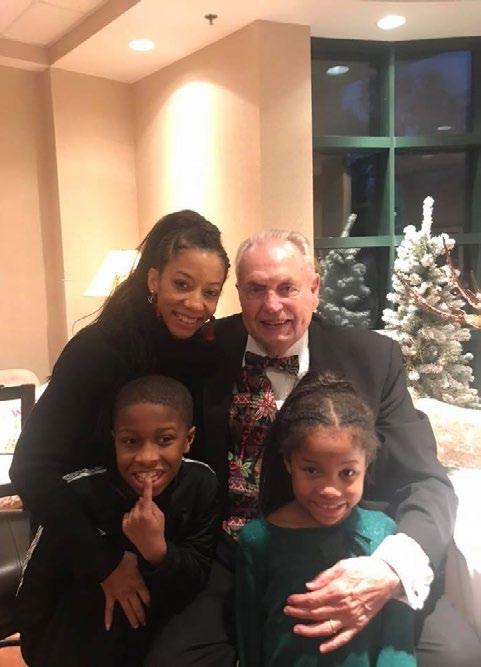
students are a team. One cannot exist without the other; therefore, they need each other.
Tiffany uses her skills in numerous community activities: Dance Works Studios of Clinton, New Stage Theater of Jackson, Mississippi Elite Cheer and Tumbling, The Movement of Mississippi, Hinds County School District, Jackson Public Schools, Alpha Kappa Alpha Sorority, Jackson State University, Southwest Jackson Soccer League, YMCA, NAACP, Word of Life Church, Young Gifted and Empowered, and the Jackson Music Awards Association.
Some favorite scriptures for Tiffany are: Proverbs 22:6 ESV “Train up a child in the way he should go; even when he is old he will not depart from it.” Exodus 20:12 ESV “Honor your father and your mother, that your days may be long in the land that the Lord your God is giving you.” Matthew 3:17 ESV “And behold, a voice from heaven said, This is my beloved Son, with whom I am well pleased.” Ecclesiastes Quotes: “There is a time for everything, and a season for every activity under heaven: a time to be born and a time to die, a time to plant and a time to uproot, a time to kill and a time to heal, a time to tear down and a time to build, a time to weep and a time to laugh, a time to mourn and a time to dance, a time to scatter stones and a time to gather them, a time to embrace and a time to refrain, a time to search and a time to give up, a time to keep and a time to throw away, a time to tear and a time to mend, a time to be silent and a time to speak, a time to love and a time to hate, a time for war and a time for
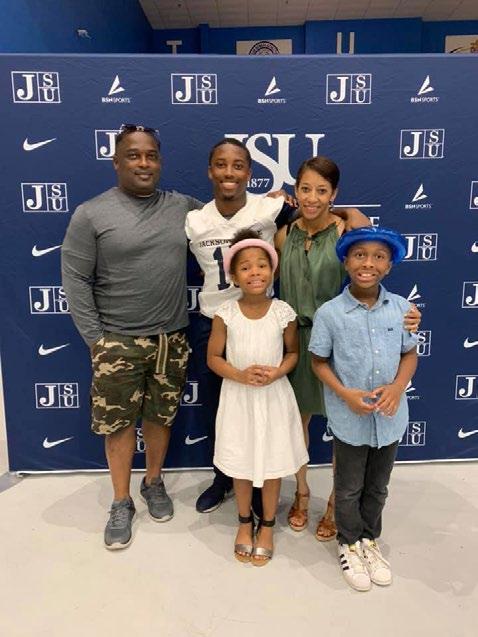
peace.”


MY CANCER JOURNEY Michelle Herrington BREAST CANCER SURVIVOR
By Dr. Brenda Box Wilder
Igrew up in Columbus, MS, where my parents, Darriel and Judy Pulliam, still reside. I have two amazing sisters who live with their families in Florida. I graduated from Caldwell High School in 1992 and Mississippi University for Women in 1996 with a degree in elementary education. It was in Columbus that I began my teaching career at Cook Elementary in 1997. I also met and married my husband, Les Herrington, at my home church, Fairview Baptist, in the same year. Les and I moved to Brandon in 2002 where we are still residents. We have two children, Trey, who is a junior at MSU, and Anna Katherine, who is a Freshman at Ole Miss. I have been employed in the Rankin County School District since 2006. I have been the instructional coach at McLaurin Elementary for the past four years.
Prior to receiving the diagnosis of breast cancer, I did not have ANY symptoms, in fact, I have no history of breast cancer in my family. I was diagnosed in November of 2017. I’ll never forget hearing the words of the doctor saying to me, “Michelle, it isn’t what we were hoping to find out. You have breast cancer.” I was at the beauty salon with my daughter, Anna Katherine, getting her ready for her sophomore beauty and beau review. I was stunned. You never really think you will hear those words. You always think- that won’t happen to me. The
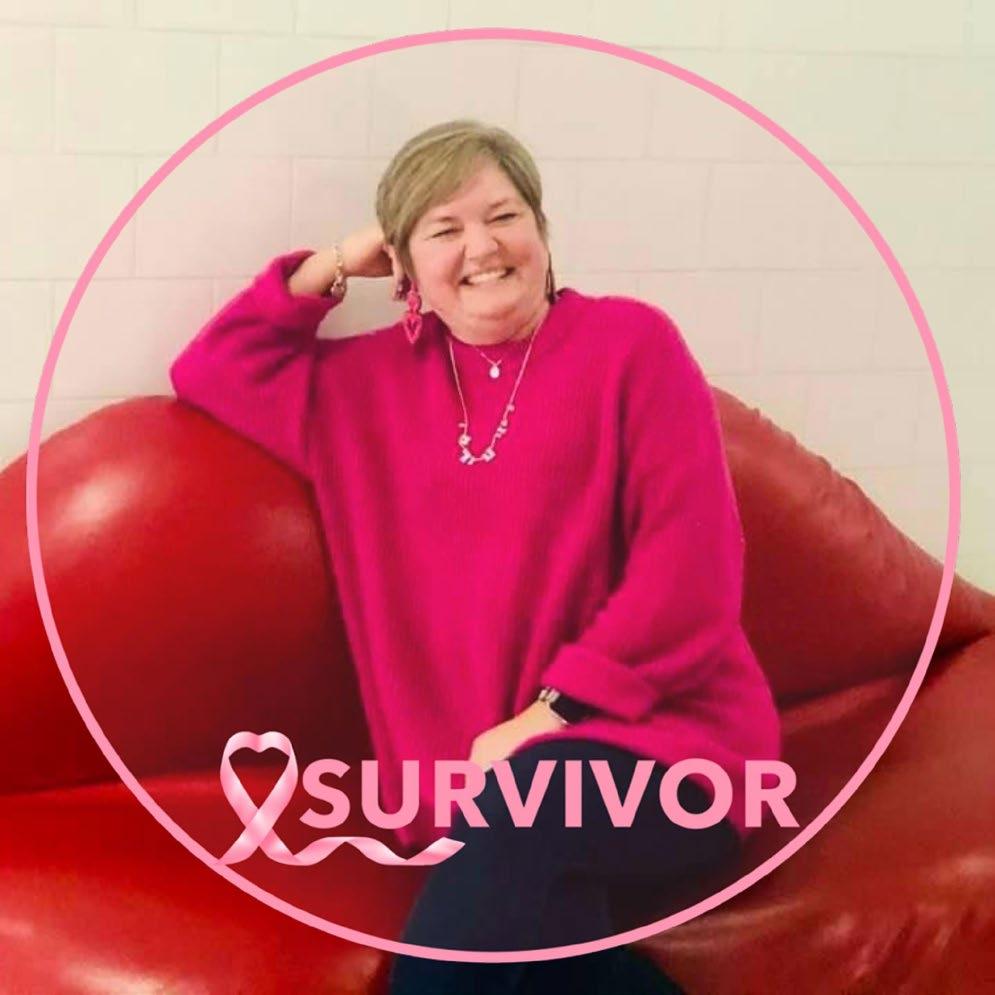
feeling of that particular moment in time will never leave me. Thinking back on it gives me a nauseous feeing to this day. But God is good….. I went through the rest of the evening not uttering a word of it to my sweet daughter so that she could savor every moment of her special day. She was chosen as a beauty and I prayed to God to see fit to let me be there for the next year.
My team of doctors (when you have cancer, it takes a team of doctors, and they become like your family) decided I would start chemo IMMEDIATELY- like the next week. I will also never forget the words of my surgeon. He said to Les and I, “The next year of your life will not be your own.” It took
some time for that to register, but he was spot on- it was an ENTIRE year of doctor’s appointments, treatments, scans, surgeries, physical therapy, radiation- you name it- I had it. IT. WAS. EXHAUSTING.
I received my port one day and started a year’s worth of chemo the next day. I was terrified, but I wanted to live, so I carried on. I had what I called 6 BAD chemo treatments (one every three weeks) and then I took Herceptin for the rest of the year. While taking the Herceptin, I had a double bilateral mastectomy. Once I recovered from that surgery, I started radiation. I didn’t know that you go every day for a treatment when you receive radiation. But God is good…… I was able to receive it during the summer. You see, I’m a teacher, so what a coincidence- right? Nope! I don’t believe that for a second.
The real plan for combatting cancer….. prayer, a positive attitude, and perfectly placed people in my life. Have I mentioned God is good? He is.
I remember at the end of my year of treatments, my oncologist said, “We won’t do scans unless something looks off in your bloodwork from this point forward. You’re in a good place and I believe you are cured of this.” At every check-up, I am filled with gratitude for another few months of life. I don’t think I will ever take time I get on this earth for granted. It is a gift.
God gave me strength to walk this journey. I always said about myself that I wasn’t strong enough to be able to withstand a storm like cancer. I would look at other women and think, “Man, I don’t think I could do that”. But I believe God wanted me to see how strong I could be in Him. He wanted me to see His hand carry me and protect me in this journey. I would never have chosen to go through this, but I would not trade those moments where I actually felt the hand of God carrying me through it. Until you experience it, you can’t really understand it. The time when a nurse just fell straight from heaven
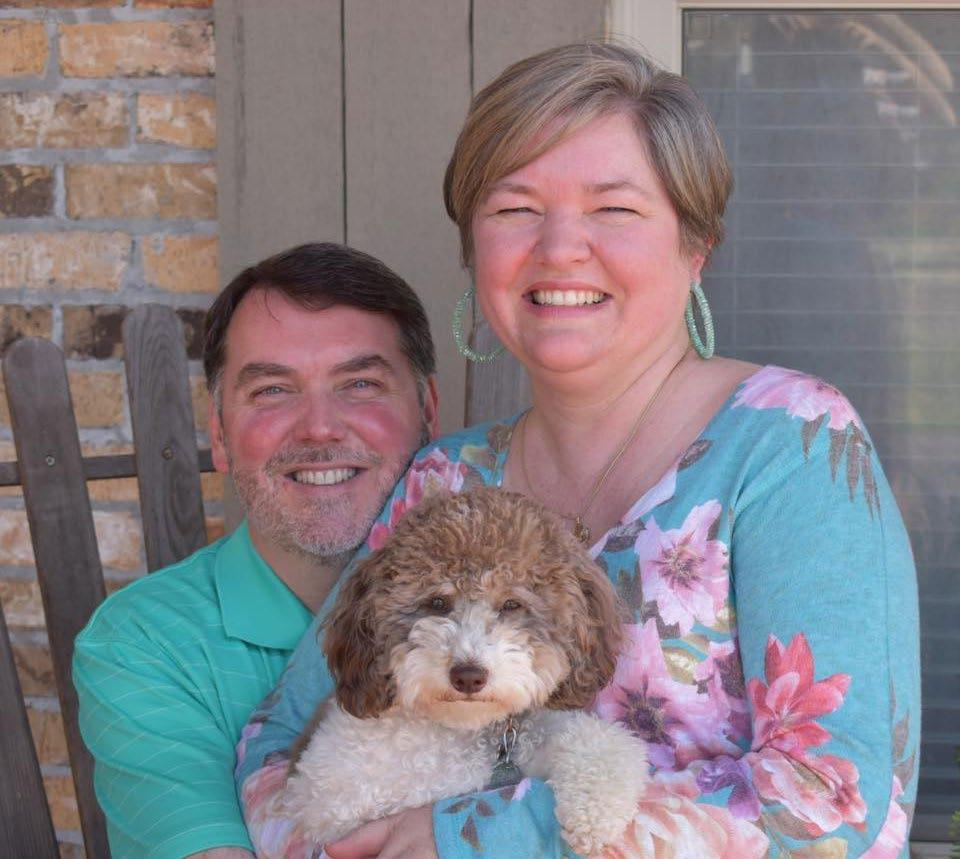
into the room where I was needing to receive an MRI and I was crying uncontrollably and couldn’t make myself get into the machine. She prayed over me and I could do it. A friend stopping by to bring me flowers and lunch when I was depressed while recovering from surgery. Two friends who were walking their own cancer journey at the same time as me that I could confide in from my church. Oh, the conversations we had…… these women were sent straight from God to help me. My family taking turns to come and stay with me the weeks of my treatments to distract me from feeling sick. A job that was the perfect fit with the most understanding bosses. I had stepped into this job in August right before I was diagnosed. Coincidence- nah! It was God. And my sweet husband who went to every doctor’s appointment with a bright pink expandable file folder pouch to keep all of the information that I just couldn’t bear to read. He is the love of my life and God gave him to me to help me through that time. I could literally go on and on, but just know that God gave me strength and sent me encouragement.
My all-time favorite verse is Matthew 5:16- “Let your light so shine before men that they may see your good works and glorify your Father, which is in heaven.”
I determined from the start of my journey that I wanted my children to see me be strong and positive during a difficult time, so I could teach them how to handle adversity when it came their way. I want people to be able to see me and know the light that is in me comes from my heavenly Father. I want my example to point others to Christ if that is something missing in their lives. Being a light for Christ is important to me!
Michelle’s advice for women newly diagnosed with breast cancer is to find a good team of doctors you trust.
Find a good team of positive people in which to seek advise. Pray and be encouraged by the prayer of others and allow people bless you with acts of kindness.









